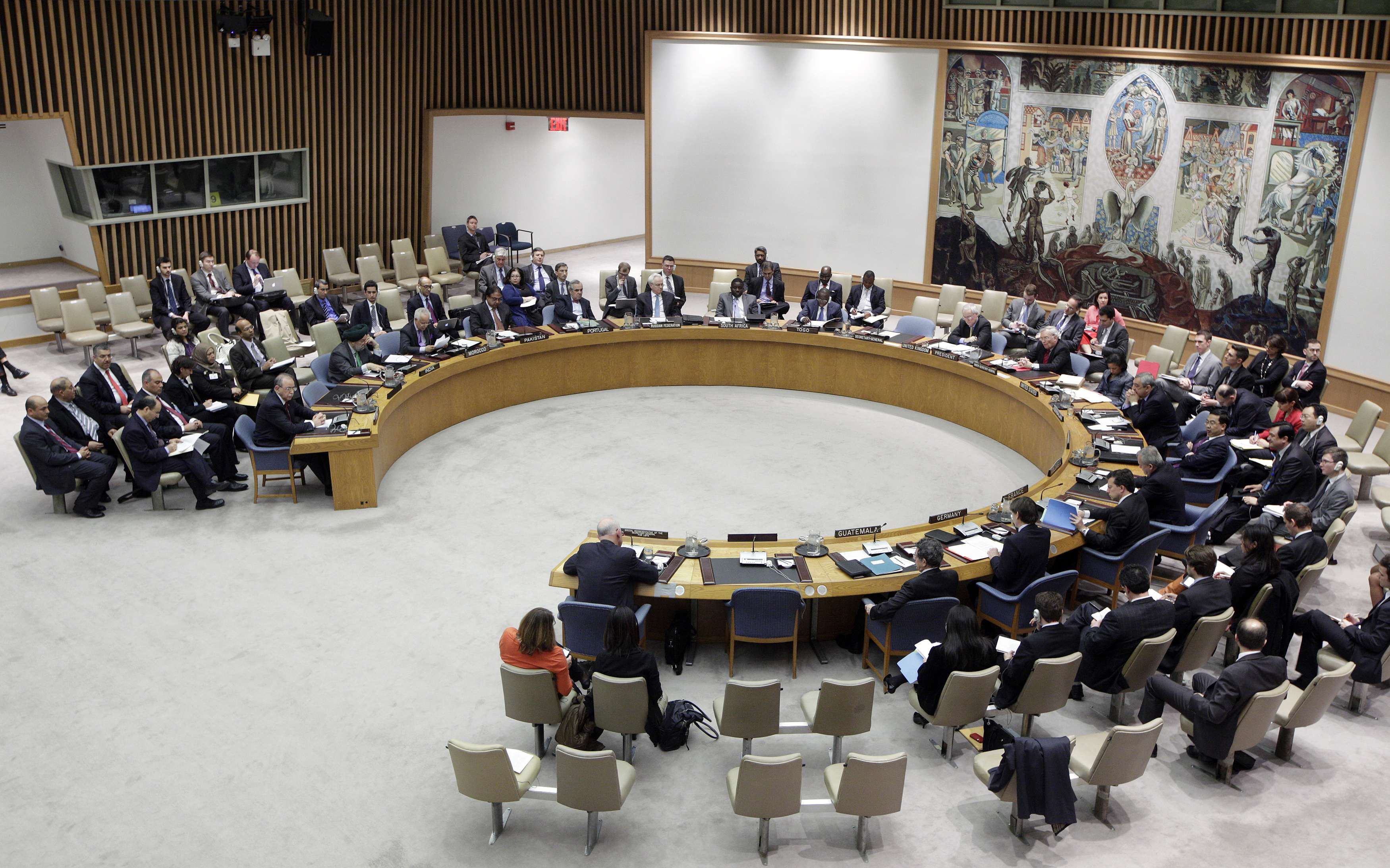LOC09:42
06:42 GMT
 UN Security Council
UN Security Council
NEW YORK, Feb 12 (KUNA) -- UN Security Council members discussed the use of sanctions during a general debate held on the working methods of its subsidiary bodies.
Most speakers called for greater transparency in the procedures and practices of UN committees established to monitor affected countries.
US representative noted that "there is no doubt" that sanctions have also advanced the Council's goals on a range of issues, including the prevention of conflict, protection of human rights, protection of civilians, nuclear non-proliferation, and even responsible utilization of natural resources.
Ambassador David Pressman, US alternate representative to the UN, said the 1267 for the so called Islamic State (IS) and Al-Qaida Sanctions Committee is helping choke off IS's sources of funding and working to mitigate the global threat posed by foreign terrorist fighters.
"And the DPRK Sanctions Committee is working to prevent the flow of sensitive nuclear and ballistic missile technology to North Korea to cut off financial relationships and transactions that fund the DPRK's prohibited activities, and to freeze the assets of those involved in violating sanctions," he added.
On the same issue, Britain and France also highlighted that sanctions had helped to restrict the development of nuclear weapons in Iran and were choking off funding for IS and Al-Qaida.
On the contrary, Iranian representative Golam Ali Khoshroo said sanctions should not be imposed unless there exists genuine threat to international peace and security or in case an act of aggression.
Sanctions, he said are not meant to punish the general population or aimed to achieving political objectives, but should be considered as the last, and not first, resort and imposed only after all means of peaceful settlement of disputes under Chapter VI of the Charter have been exhausted.
Since 1966, the UN Security Council has established 26 sanctions regimes imposing arms embargoes, travel bans and financial restrictions on nations and extremist groups as part of broader political strategies to resolve conflicts and maintain international peace and security.
For the first time sanctions-affected countries such as Iran, were invited to address the Council under rule 37 of its provisional rules of procedure. (end)
mao.tg